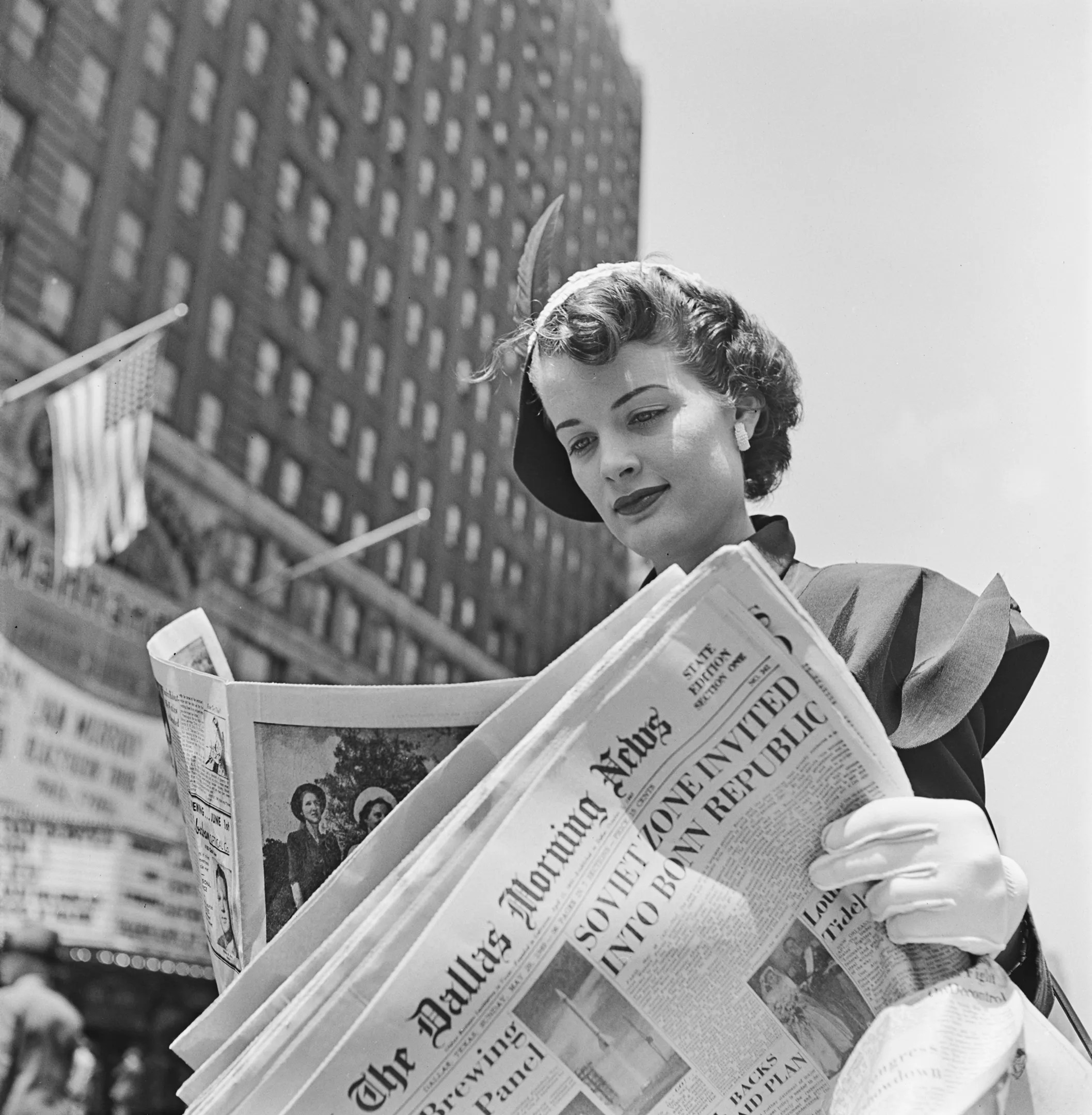
Archive Photos/Getty Images

Audio By Carbonatix
The Thursday announcement that The Dallas Morning News (always “The”) has been sold after 140 years of local ownership will elicit much hand-wringing, garment-rending and tooth-gnashing. And yes, we can talk about the paper losing its local ownership, and the possibility of local staffers losing their jobs, and all the rest. That stuff does matter.
But a lot of that is crying crocodile tears. The News’ agenda has rarely been Dallas’, but one that focused on development and keeping city government out of the way of that development. It’s thrown money around to win Pulitzer Prizes (it has won nine) to show that it cares about editorial quality without actually having to care about editorial quality. And its politics are usually so conservative that even Texas moderates sometimes look like neo-Marxists in comparison.
So forgive me if I don’t weep hearts and flowers. I was at the Dallas Times Herald at the end in 1991, when the News bought the Herald and closed it. And I’m still bitter. Yes, the Herald had its problems, including a succession of less than competent owners, but the fight that we lost was not a fair one. The News, with its deeper pockets and peculiarly News-ish frame of mind about what was “fair,” could hire lawyers to legally steal the Doonesbury comic strip – then a huge circulation booster – and to weasel out of an east Texas circulation fraud case (to be followed, 20 years later, not so oddly perhaps, by a similar fraud). So much for that level playing field.
Some of you will point out that the News has become kinder and gentler over the past decade or so, moderating its politics and even changing the name of the company that owned it to supposedly distance itself from some of its past excesses. To which I ask: “If it quacks like a duck. …”
Finally, the irony of all of this is that the paper leadership did much to bring itself to this point, tossing cash out the window as if it would reproduce on the way out. In the early 1990s, Belo Corporation, its parent company tried to buy the Boston Globe (losing out to The New York Times) while it compiled a sort of national chain in the process, which included papers in Providence, Rhode Island and Riverside, Calif. Belo also owned plenty of TV stations, and eventually, something called Texas Cable News Network, which featured News staffers and took on various forms over its relatively short lifespan.
And let’s not forget the rest of the good money thrown after bad with Quick, an Observer-like weekly that lasted eight years in the 2000s; the massive Plano printing plant, expanded after the Herald closed but then became a white elephant when the News‘ circulation went into freefall; and CueCat, the company’s attempt to go digital in the early 2000s. How awful was CueCat? It made PC World’s list of the 25 worst tech products of all time.
All of this showed – repeatedly – that the News’ owners never understood what was about to happen to traditional newspapers. It seems to me they assumed their company was immune, simply because it was the News. I should mention here that I was in a meeting in the late ’80s at the Herald, where the sports editor told us the paper was looking for ways to move away from traditional delivery, like faxes and letting subscribers choose what sections it wanted instead of getting the whole paper, to name just two. So there were some publishers out there that had an idea about what the future might bring.
Call me cranky or crotchety or whatever. That’s fine. We still don’t know what will happen once Hearst takes over, of course, but I am not ashamed to say revenge served cold still tastes pretty damned good.